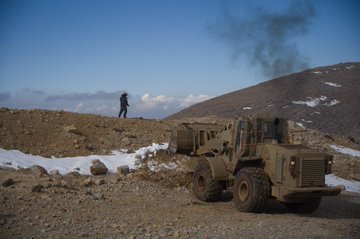UK’s Position on Hayat Tahrir al-Sham
The United Kingdom is currently reevaluating its ban on Hayat Tahrir al-Sham (HTS), a group previously affiliated with al-Qaeda that played a significant role in the rebellion against Bashar al-Assad in Syria.
UK’s Minister for Intergovernmental Relations, Pat McFadden, indicated that this reconsideration will largely depend on the current actions and behavior of HTS.
As the geopolitical landscape continues to shift, this move signals a potential change in the UK’s approach towards groups involved in the Syrian conflict.



Impact of the Review
The decision to reconsider the ban on HTS is indicative of the complexities surrounding the ongoing conflict in Syria.
By assessing HTS’s trajectory, Britain aims to clarify its stance on collaborating with groups that might align against radical elements or provide stabilization in the region.
Observers are keen to see how such a review might affect the overall balance of power and the potential for future alliances or conflicts within Syria.
IDF’s Recent Strategic Actions
In a related note, the Israeli Defense Forces (IDF) have recently taken measures to expand their demilitarized zone in Syria, including the strategic Hermon area.
This enhancement is viewed as a vital step in bolstering Israel’s defense capabilities against any advancing forces, utilizing the region’s natural terrain.
Furthermore, the IDF released images of their elite 5101st unit (Sayeret Shaldag) engaged in operations in this area, emphasizing their commitment to securing national interests amidst the ongoing regional tensions.